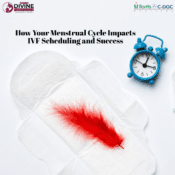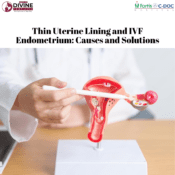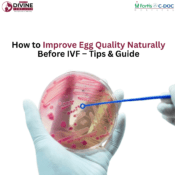

What Happens During Embryo Transfer? Everything You Should Know
1. Introduction
In-vitro fertilization (IVF) is a complex yet revolutionary procedure designed to help individuals and couples overcome infertility and achieve pregnancy. Controlled ovarian stimulation, egg harvesting, fertilization, embryo culture, and embryo transfer are all steps in the procedure. Each step is essential, but the embryo transfer marks the pivotal moment where medical science and hopeful anticipation meet.
The embryo transfer in IVF is the final, decisive step where one or more embryos are placed into the uterus, offering the chance for implantation and pregnancy. Though the procedure itself is relatively simple, it is emotionally intense and clinically crucial.
This blog aims to provide a thorough yet approachable explanation of the embryo transfer process. We’ll walk you through every detail — from preparation to post-transfer tips and potential outcomes — to help you feel confident and informed. Whether you’re beginning IVF, supporting a partner, or exploring fertility treatment, this guide is for you.
2. What Is Embryo Transfer?
Definition and Role of Embryo Transfer in IVF
Embryo transfer is the final step of the IVF procedure. It involves placing a healthy embryo into the uterus to establish a pregnancy. The embryo may be transferred fresh (immediately after fertilization) or after being cryopreserved and thawed (frozen embryo transfer).
Fresh vs. Frozen Embryo Transfer
- Fresh Transfer: Done 3–5 days after egg retrieval.
- Frozen Embryo Transfer (FET): Involves thawing previously frozen embryos and transferring them in a later cycle. This allows time for hormonal normalization and personalized scheduling.
Understanding the frozen embryo transfer process step by step is crucial for those choosing this route. Benefits include improved timing, reduced ovarian hyperstimulation, and often better outcomes.
Importance of Timing and Preparation for Success
Proper timing ensures the embryo is transferred during the optimal IVF implantation window, typically 6 to 10 days after ovulation or its medical equivalent in a medicated cycle.
3. When Does Embryo Transfer Happen in the IVF Timeline?
How Long After Egg Retrieval Is Embryo Transfer Done?
In a fresh cycle, embryo transfer usually occurs:
- Day 3 Transfer: Embryo is 6–8 cells old
- Day 5 Transfer (Blastocyst): Embryo is more developed, with higher implantation potential
Frozen embryo transfers depend on the preparation of the uterine lining.
Synchronizing with Uterine Lining for Optimal Implantation
Whether in a natural or medicated cycle, ensuring endometrial receptivity is vital. Your doctor monitors hormone levels and lining thickness to ensure alignment with embryo development.
- On which day of cycle is frozen embryo transfer done? Typically Day 17–21
- When is frozen embryo transfer done after a period? Usually 5–7 days post-ovulation
4. Preparation Before the Embryo Transfer
Medications (Progesterone, Estrogen)
You’ll begin hormone treatments, commonly listed in the IVF medications list, to create a supportive environment for implantation:
- Estrogen: Builds the uterine lining
- Progesterone: Prepares lining for implantation and supports early pregnancy
Ultrasounds and Endometrial Lining Check
Your doctor will measure the thickness of your uterine lining, which should ideally be 7–10 mm with a triple-line pattern.
Do’s and Don’ts Before Embryo Transfer
What to do the night before embryo transfer:
- Take your medications
- Avoid caffeine, alcohol, and stress
- Sleep well
Avoid heavy exercise, perfumes, lotions, or any products that could interfere in the lab environment.
Emotional and Physical Readiness
Mental calmness and emotional readiness are as important as physical preparation. Mindfulness, yoga, journaling, and open communication can be very helpful.
5. The Embryo Transfer Procedure: Step-by-Step
Arriving at the Clinic
Arrive with a full bladder if instructed—it helps with ultrasound guidance. Wear comfortable clothes and bring your partner or support person if allowed.
Procedure Setup and Ultrasound Guidance
You will lie on an exam table. A speculum is inserted, and an abdominal ultrasound is used to guide catheter placement.
Use of Catheter to Place the Embryo in the Uterus
The embryo is loaded into a soft catheter and gently inserted through the cervix into the uterus. Placement is precise, using ultrasound as a guide.
Pain Level and Duration
Is embryo transfer painful? Most women report it is not painful, describing mild pressure or discomfort similar to a pap smear. The procedure lasts 15–20 minutes.
Resting Time Post-Procedure
You'll rest for about 15–30 minutes before being discharged. Some clinics recommend light activity afterward.
6. What Happens After Embryo Transfer?
Luteal Phase Support (Progesterone Supplements)
Progesterone support continues post-transfer to enhance implantation chances. Methods include vaginal gels, tablets, or intramuscular injections.
What Symptoms to Expect
Positive signs after embryo transfer may include:
- Light spotting (implantation bleeding)
- Mild cramps
- Breast tenderness
- Fatigue
However, absence of symptoms does not mean failure.
Common Emotional Responses
The IVF 2-week wait can be emotionally intense. Stay connected with support systems, consider therapy or journaling to cope with stress.
2-Week Wait: What to Do and Not Do
Do:
- Continue medications
- Stay hydrated
- Eat balanced meals
- Engage in light activity
Don’t:
- Take an early pregnancy test
- Do intense workouts
- Stress over every symptom
7. Tips for a Successful Embryo Transfer
Lifestyle Tips (Diet, Rest, Stress Reduction)
- Practice mindfulness or meditation
- Prioritize sleep (7–8 hours)
- Minimize stress through light walks, reading, or hobbies
Foods to Eat and Avoid
Eat:
- Avocados
- Leafy greens
- Eggs and nuts
- Whole grains
Avoid:
- Alcohol
- High-sugar, processed foods
- Excess caffeine (limit to 200 mg)
What Activities to Limit
- Avoid saunas, hot tubs, or hot baths
- Refrain from sexual intercourse for a few days
Sleep Positions, Caffeine, Alcohol
- Sleep on your back or side
- Avoid alcohol
- Limit caffeine
8. Potential Risks and What If It Doesn’t Work?
Implantation Failure
This may happen due to:
- Embryo quality
- Uterine lining issues
- Immunological factors
Early Miscarriage
Implantation might occur, but pregnancy fails to progress due to chromosomal abnormalities.
When to Consider Next Steps
If implantation fails:
- Try frozen embryo transfer
- Conduct ERA test or other diagnostics
- Discuss next cycle protocols with your fertility specialist
Emotional Support During Setbacks
Support groups, therapy, or fertility coaching can provide emotional stability and hope for future cycles.
9. Embryo Transfer at the Best IVF Centre in Delhi
Why Choosing an Experienced Center Matters
Success in IVF heavily depends on lab quality, clinician experience, and tailored care. Choosing the best IVF center in Delhi ensures access to all of these.
What to Expect at Mother Divine Fertility
At Mother Divine Fertility, we offer:
- State-of-the-art technology
- Individualized protocols
- High success rates
- Compassionate care
Personalized Care and High Success Rates
Every patient receives customized treatment based on their unique fertility profile. We track embryo development closely and time transfer with scientific precision.
Testimonials and Patient Experiences
Our patients share uplifting IVF success stories, highlighting our caring staff, transparent communication, and successful outcomes.
10. Conclusion
The embryo transfer in IVF is a delicate yet powerful step in your fertility journey. Understanding the procedure, timing, preparation, and recovery can empower you and improve your chances of success.
From hormonal balance to emotional readiness, every aspect contributes to this incredible journey. With the right support and medical care, your path to parenthood becomes more hopeful and achievable.
If you're preparing for an embryo transfer or exploring fertility options, connect with Mother Divine Fertility, the best IVF centre in Delhi. Our experienced team is here to support you at every stage with compassion, expertise, and optimism.
Call to Action:
- 📞 Schedule your consultation today
- 💬 Have questions? We’re here to answer them all
- 🌱 Your dream of parenthood is possible—with the right care and guidance





